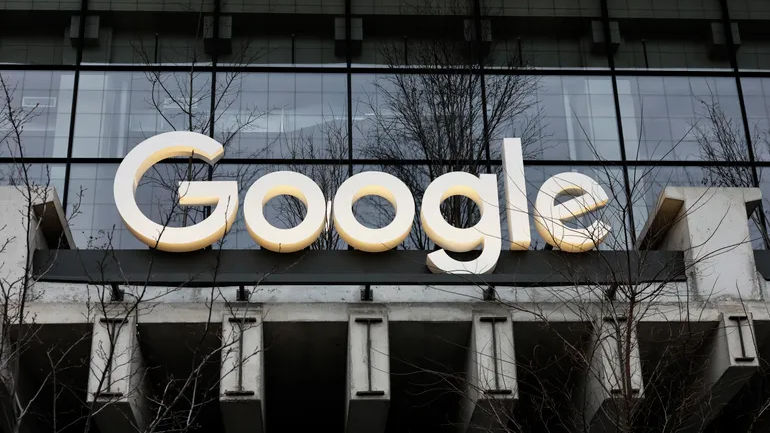
Marketers React: Are Cookies Still Relevant Amidst Changing Landscape?

Amid Google's antitrust challenges and the looming data privacy law, marketers weigh the future of cookies. Is it time to pivot from cookie-centric strategies or stay the course? Explore the evolving marketing terrain.
Google has once again delayed the death of the cookie in Chrome, making it the third time they've done so. This move has further complicated the advertising industry's efforts to move away from this foundational technology in digital advertising.
The original plan was to phase out the tracking technology for all users in the second half of 2024. This was after a test began in January, where cookies were deprecated for 1% of users. However, Google announced in a blog post on April 23 that they now aim to proceed with the deprecation early next year.
The company acknowledged the ongoing challenges in addressing feedback from the industry, regulators, and developers. They emphasized their commitment to closely engage with the entire ecosystem.
The latest delay was due to concerns raised by regulators and industry bodies such as the IAB Tech Lab, the Competition and Markets Authority (CMA), and the Information Commissioner’s Office (CMA) in the UK. These concerns were primarily about the viability and potential anti-competitive nature of Google's Privacy Sandbox proposals. The CMA has requested to review industry test results by the end of June, which made the previous deadline impossible to meet.
Despite the delay in the execution, it is important for marketers to not use this as a reason to slow down or cancel their post-cookie plans. Even if Google eventually receives approval for deprecation, there are other factors to consider such as antitrust action, the possibility of a nationwide data privacy law, and the company's changing priorities.
According to Wilfried Schobeiri, the chief technology officer at Ogury, the exact timing of when the cookie disappears from Chrome, whether it is in 2024 or 2025, is not the main concern. He emphasizes that we are currently at a critical turning point in safeguarding consumer privacy.
Marketers have already started adapting to the changes in the industry. This journey began long before Google's decision to disable cookies, and advertisers can no longer ignore the shift. The recent delay should be viewed as a chance to invest in reliable solutions that can provide scalability without relying on specific timelines or future industry changes.
Many industry figures were not surprised by the latest delay in Google's deprecation plans, as changes to the timeline and process had been frequent. Despite the possibility of further delays or the plan not coming to fruition, a significant number of professionals have already started or are planning to adopt cookieless solutions in the future.
According to a March survey conducted by identity solution provider ID5, nearly two-thirds (63%) of advertising professionals believed that cookie deprecation would be postponed to Q1 2025. However, 72% of industry professionals have already embraced an alternative solution, with an additional 20% planning to do so, as revealed in ID5's latest State of Digital Identity Report.
Mathieu Roche, CEO and co-founder at ID5, expressed his view that third-party cookies are outdated and ineffective. He believes that delaying the inevitable transition away from these cookies is causing more confusion, fragmentation, and frustration in the industry.
Roche pointed out that the phase-out of third-party cookies does not mean the same as Google's Privacy Sandbox. He mentioned the existence of various other identifiers and privacy solutions that have emerged in recent years. Despite ID5 using its own cookieless identifier, the probabilistic ID5 ID, other industry executives share similar sentiments.
Lance Wolder, head of strategy and marketing at digital ad company PadSquad, shared his thoughts on the Google Privacy Sandbox. He questioned the relevance of cookies in today's digital landscape, noting that ad tech firms like Liveramp, TTD, and Magnite are already embracing identity-free solutions.
Since Google's announcement about phasing out cookies, marketing strategies centered around first-party data and connected TV advertising have become more popular. These approaches do not rely on cookies, offering alternative options for advertisers to reach their target audiences.
Marketers are continuing to explore and implement cookieless solutions. According to Ryan Stewart, head of publisher acquisition, North America at programmatic platform MGID, the key lesson from Google's delays is to avoid playing a "game of cat and mouse with regulators and big tech providers."
Stewart also noted that there is a valuable lesson for the buy-side to learn from the proactive approach taken by publishers and media owners. They are actively gathering and organizing first-party data to create effective strategies for data activation and monetization. Despite the challenges ahead, they are making progress towards establishing a strong post-cookie ecosystem.
Google's decision to delay deprecation
Google has decided to delay the deprecation process, giving more time to reach a consensus among its proposals, the ad industry, and regulators worldwide. The Privacy Sandbox, according to the CMA, may pose challenges for smaller players in digital advertising. The ICO also expressed concerns in a draft report, citing potential risks to user privacy within the framework. Despite a report from the IAB Tech Lab, disputed by Google, highlighting the potential disruption to the current programmatic ecosystem, the industry is urged to adopt a "portfolio approach" for addressability in light of the delay.
IAB Tech Lab CEO Anthony Katsur emphasized the importance of not letting the delay slow down progress in the digital advertising industry. It is crucial to keep innovating privacy-preserving addressability and measurement solutions, while also collaborating with Chrome to address the limitations of the Privacy Sandbox.
Unfortunately, resolving all these issues before 2025, a goal that has been elusive for over four years, seems unlikely. Adding to the challenge, Google is facing a trial in September following allegations by the U.S. Justice Department and a group of states that it has monopolized the digital ad market and hindered competition.
Congress is progressing on comprehensive data privacy legislation called the American Privacy Rights Act (APRA), which could potentially revolutionize the issue of cookies and digital ad tracking. This new legislation has bipartisan support and aims to standardize data privacy laws, which have been inconsistent as states create their own regulations.
Google is currently facing regulatory challenges and pushback from the industry on multiple fronts. To adapt to a slowing advertising growth, Google is restructuring its business to focus on growth sectors like AI and cloud services. Parent company Alphabet is set to reveal its latest earnings report on Thursday (April 25), providing insight into the evolving strategies of the tech giant. This report may also shed light on how these changes will impact marketers in the advertising world.
PadSquad's Wolder cautions the industry not to delay making decisions, as much of the cookie depreciation has already happened. He advises marketers to own their data and approach reaching and messaging customers and prospects thoughtfully to secure the biggest share of wallets.
Editor's P/S:
Google's repeated delays in deprecating cookies have created uncertainty in the advertising industry. While marketers should not slow down their post-cookie plans, it's crucial to recognize that the timeline may continue to shift due to ongoing feedback, regulatory concerns, and antitrust actions. The industry needs to embrace a proactive approach, investing in reliable cookieless solutions and exploring strategies that prioritize first-party data and connected TV advertising.
The broader context also plays a role. Google's Privacy Sandbox faces scrutiny from regulators, highlighting the need for a comprehensive approach that balances consumer privacy with the viability of the digital advertising ecosystem. The potential for nationwide data privacy legislation and Google's own business restructuring add further complexity. As the industry navigates these challenges, marketers must stay adaptable, embrace innovation, and prioritize long-term strategies that ensure effective reach and engagement in a rapidly evolving landscape.











